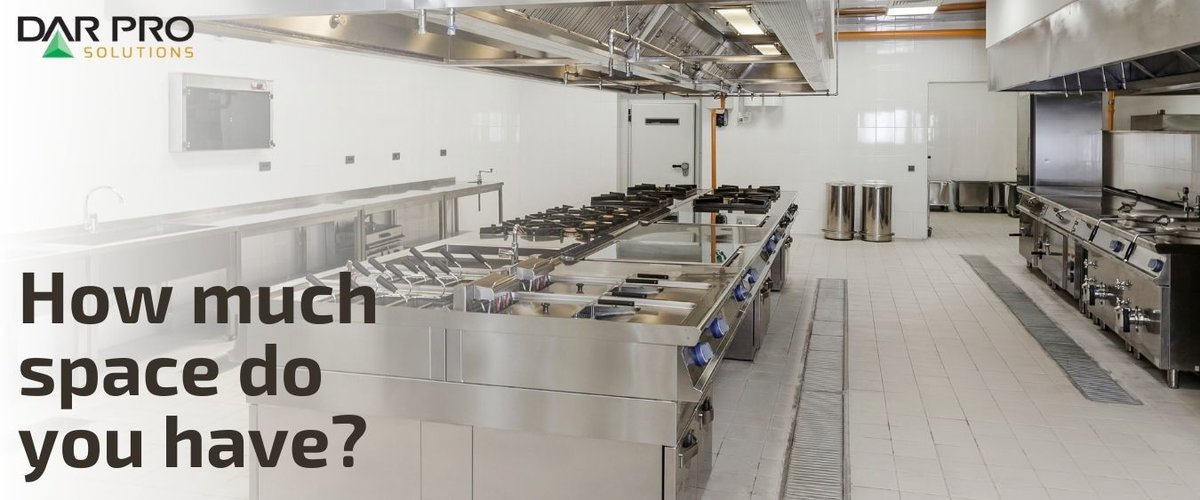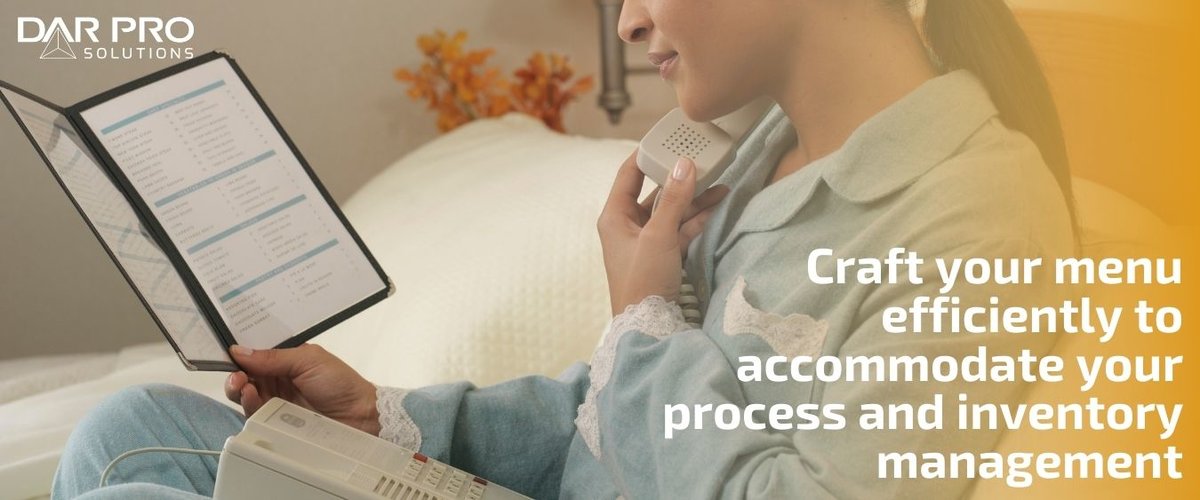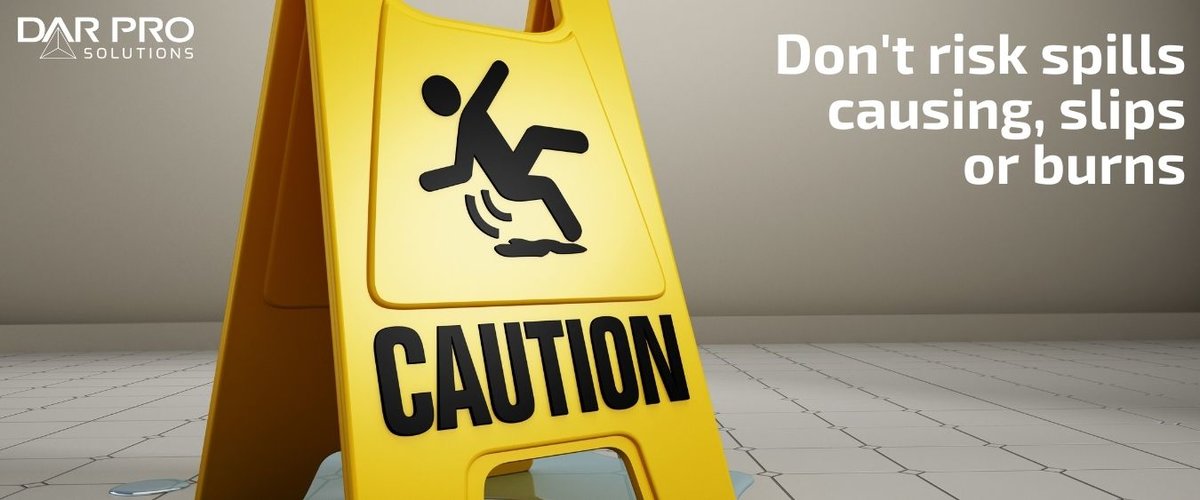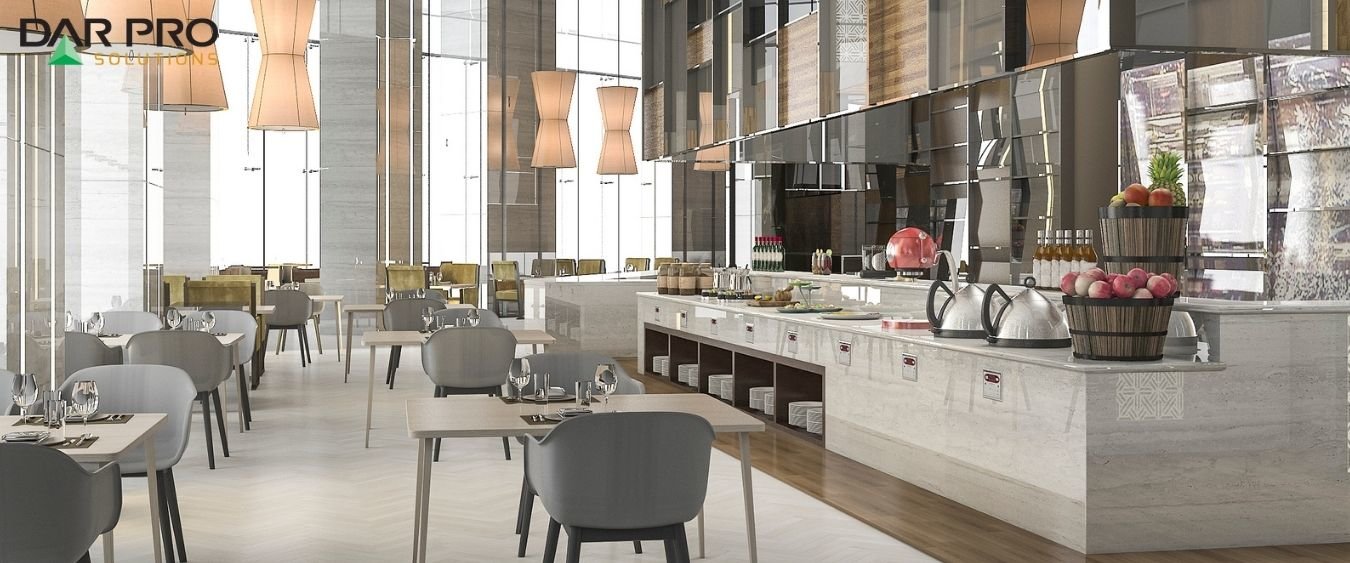1. Things to consider when choosing the right hotel kitchen design
Kitchen ergonomics are key for any restaurant or commercial kitchen, but particularly for hotels. Your chef and staff need to be able to move around freely while creating your menu items in an efficient and timely fashion. The most important thing you need to figure out when trying to configure your kitchen design is how much space you have. Once you’ve determined that, your layout should take into account how many guests you plan on serving as well as how diverse your menu is. Having different stations to prepare different types of dishes, whether they are paired together or not, is important to consider when trying to design your kitchen layout. A design that suits your kitchen best will help it operate more efficiently and help better serve your guests.

2. Utilizing technology is key when selecting your hotel food and beverage menu
The appliances and technology needed to operate a hotel kitchen are similar to a stand-alone commercial kitchen in many respects, but there are some unique factors to consider with regard to hotel kitchens. Based on how much of your menu consists of premade and pre-packed items versus made to order, make sure you have the proper amount of storage and refrigeration for those premade menu items. Utilize available technology to track which menu items are most popular to better optimize both your menu and your inventory. You don’t want seldom-ordered dishes to clog your menu and your ingredients shelves.
Energy efficient appliances are another way to help you conserve both energy and money because you won’t have to have different kitchen appliances running throughout the day even when they are not being actively used. According to Hotelier, 40% of the energy consumed in a hotel kitchen is to cook and store food, while 33% of the energy cost is spent on heating the food and water. The placement of your appliances should fall in line with your kitchen’ s design and workflow too.
3. How to properly construct your hotel menu when it comes to what food and beverage you will serve
Constructing your hotel kitchen menu and your food preparation process might just be the most crucial part of the entire operation. Hotels are unique in that they often offer three meals a day, plus room service and other grab-n-go food at bars or other leisure areas within the hotel depending on its size. Figuring out how many if not all three of breakfast, lunch and dinner you will offer and how much of those menu items are premade versus made to order is key to both your process and organizing your inventory management.
How expansive will your room service menu be? How much different will your dine-in lunch and dinner menus be? There are all important things to consider when constructing your menu. Hotel kitchens are unique in that they often serve a wider variety of food than typical restaurants because the majority of their customers are presumably staying at the establishment as well. Carefully crafting your menu in the efficient fashion will save you a headache in the long run.

4. How to manage waste in your hotel kitchen
Hotels are a large undertaking all together and waste management is a large part of that. How to handle your food-related waste, including used cooking oil recycling and kitchen grease, is a crucial part part of your hotel kitchen’s operations. Is your restaurant on the first floor? If it isn’t and a longer trip to an outdoor grease storage bin is required to dispose of your spent cooking oil, you’ll need a reputable provider with proper equipment to help you accomplish that. The last thing you want is an employee haphazardly carrying a hot pot of oil across your restaurant or hotel lobby and spilling it, potentially leading a spill, slip fall or burn. While it may not seem like a top-of-mind concern, having a plan to handle your used cooking oil will save you time and money in the long run.

The same goes for your grease trap. A potential clog or back up stemming for your kitchen operations could lead to a mess not only in our kitchen but potentially elsewhere in the hotel, as well as create an unpleasant odor in your kitchen. Not to mention, you could be subject to potential fines stemming from improper management of your trap. Waste is a natural byproduct of any kitchen’s operations, and it is important to have a plan and a firm handle on how to manage, especially with hotel kitchens due to it being a joint operation with a hospitality establishment.
Hotel kitchens are unique in a variety of ways from your traditional restaurant. Keeping these things in mind when opening and running your hotel kitchen will keep your business running smoothly and efficiently while serving your guests.
DAR PRO Solutions is committed to providing a seamless and hassle-free used cooking used cooking oil disposal service. With plenty of options for grease trap cleaning, pickup services, and more, we’re sure to have the perfect solution for your needs. Instead of wondering what to do with your used cooking oil, let us take care of it. Call us 24/7/365 at 855-DAR-PRO1 (855-327-7761).
Contact Sales
For customer service inquiries call our toll free number (855) 327-7761
By submitting this form I agree to the privacy policy including the usage of contact details to contact me for marketing purposes.
10/25/2021
